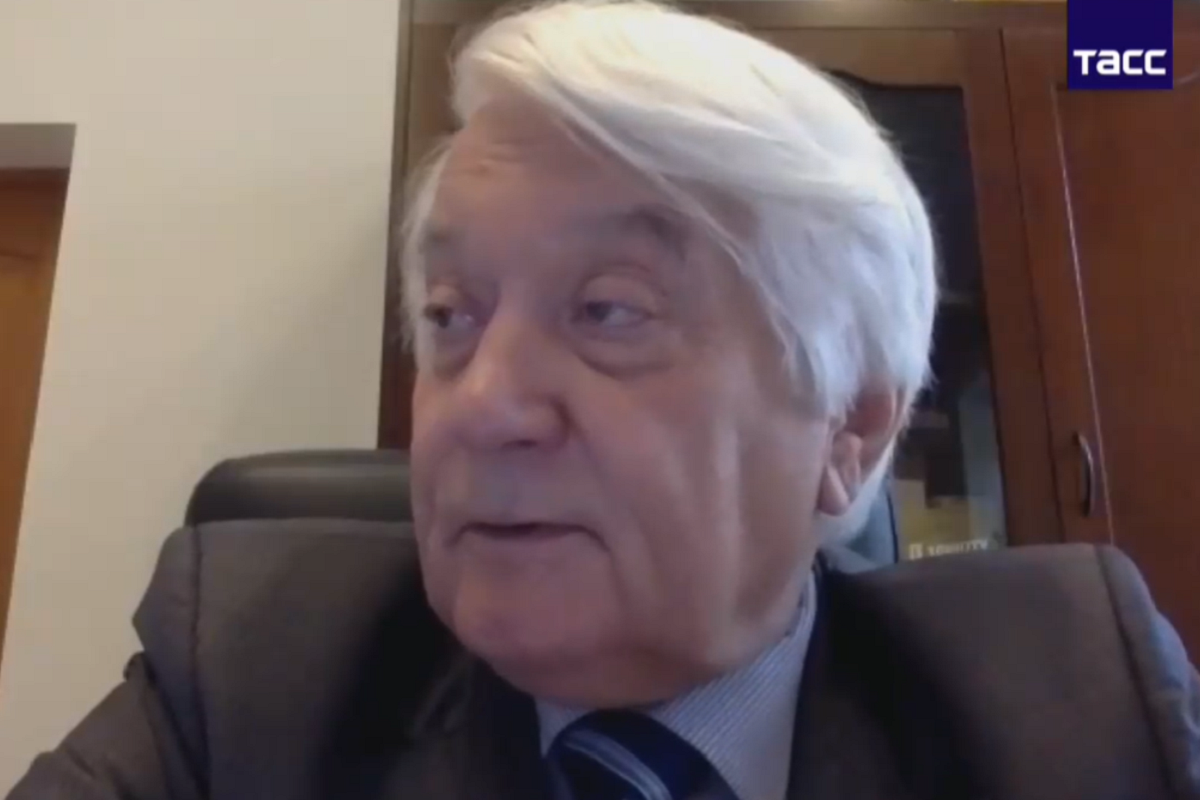St Petersburg University presents the world-class research centre ‘Agrotechnologies of the Future’

Scientists from St Petersburg University will work within this new structure, created as part of the national science project, to develop innovative agricultural projects. Igor Tikhonovich, Dean of the Faculty of Biology of St Petersburg University, President of the Vavilov Society of Geneticists and Breeders and a Member of the Russian Academy of Sciences, spoke about the centre at a press conference at TASS.
In August St Petersburg University, together with six other research institutions, was authorised to establish the 'Agrotechnologies of the Future', one of the first world-class research centres to conduct research in the most important areas of modern science. Igor Tikhonovich believes that the development of agro-technologies of the future will be founded on new fundamental achievements.
'Although discoveries cannot be planned, they are to be expected if you look at the developing areas in modern science. Biology stands on two legs – medicine and agriculture. Both of these areas are now rapidly developing at St Petersburg University. Agriculture, previously not very popular, is now becoming one of the priorities thanks to the support of the management, and above all Rector Nikolay Kropachev,' said Igor Tikhonovich.
The world-class research centre 'Agrotechnologies of the Future' was established as part of the national project 'Science'. The Centre will involve, apart from St Petersburg University, Russian State Agrarian University - Moscow Timiryazev Agricultural Academy, Federal Research Centre ‘Fundamentals of Biotechnology’ of the Russian Academy of Sciences, Federal Research Centre ’Informatics and Management’ of the Russian Academy of Sciences, the All-Russia Research Institute for Agricultural Microbiology, V.V. Dokuchayev Soil Science Institute, and the N.I. Vavilov All-Russian Institute of Plant Genetic Resources.
He spoke about the outstanding achievements of University scientists, who will become part of ‘Agrotechnologies of the Future’ in line with the goals of the consortium. For example, the expansion of agricultural activities into the cold regions of the Earth could become a breakthrough in the development of the agro-industrial complex.
In Russia, such soils cover up to 60% of the territory. They are the most important and prospective agricultural resource. Evgeny Abakumov, Professor at the Department of Applied Ecology, is currently working on the technology for growing various crops, such as potatoes, in cold environments.
Igor Tikhonovich, Dean of the Faculty of Biology, Member of the Russian Academy of Sciences
Another project concerns the method of recycling agricultural waste using vermiculture. The Department of Zoology of Invertebrates is currently improving this technique under the supervision of Professor Andrei Granovitch. The researchers are trying to improve the efficiency of this method, primarily by regulating the microbiome of various lines of worms.
'One more area of research is work to combat ticks that damage plants. Scientists from the Department of Zoology of Invertebrates have succeeded in identifying the mechanism used by parasites to create “lodges” for themselves in plants. It turned out that ticks live in symbiosis with agro-bacterial cultures. With their help they were able to achieve changes in the growth and development of plant tissue,' explained the speaker.
St Petersburg University also conducts genetic studies. The Professor of the University, Doctor of Biology Tatiana Matveeva, has proved that the exchange of genetic information between microorganisms and plants in nature is a standard practice. She has studied more than 200 species of flora and found that many of the known plants we eat have DNA fragments of bacteria in their genome. The list of transgenic plants created by nature includes sweet potatoes, peanuts, cranberries, hops, tea and many more.
The expert emphasised that such evidence is an unbiased assessment of the role of genetic manipulation, which is important for improving legislation in this area.
The approach based on the use of microbial genetic resources opens up entirely new and unexplored opportunities for greener farming.
Igor Tikhonovich, Dean of the Faculty of Biology, Member of the Russian Academy of Sciences
Geneticists from the same department, working under the supervision of Professor Liudmila Lutova, have identified a number of genes that regulate the growth and development of plants. Using potatoes and radishes, they identified which genes are responsible for the shape and size of the root. 'It is of great significance for agriculture. We hope to learn to regulate yield indicators, such as the size of tubers and root crops, by controlling the expression of newly identified genes,' added the expert.
The Dean of the Faculty of Biology at St Petersburg University also noted that the University will actively contribute to the development of educational programmes to promote knowledge about current fundamental problems of the agro-industrial complex. There are plans to launch a series of courses, and the University is already accepting applications for a master’s programme ‘Molecular Biology and Agrobiotechnology of Plants’. Thus, the agricultural industry will be able to employ new scientists and benefit from their knowledge and skills in the most advanced technologies.

